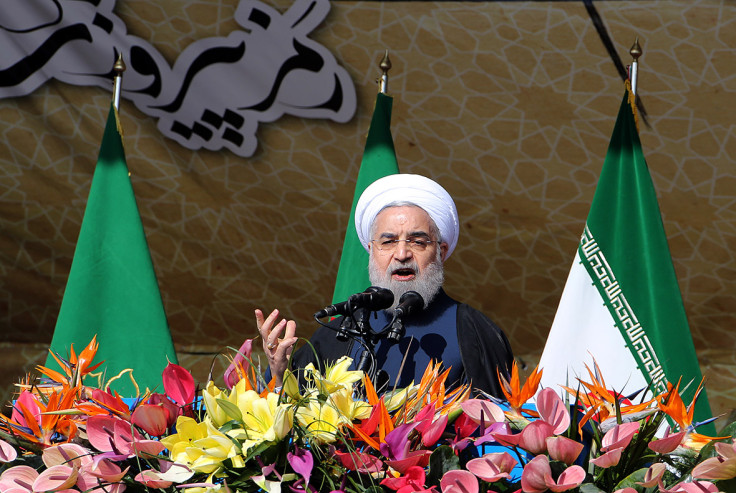Iran elections 2016: Young people 'not interested in voting' for candidates 'chosen by regime'

Many young people are planning not to vote in the upcoming Iranian elections, instead pushing for regime change, according to a source inside Tehran.
Two elections set for 26 February, the Majlis (parliament) and the Assembly of Experts, which is charged with selecting and overseeing the supreme leader, may shape the country's future – but many young people feel their votes will be wasted.
Speaking exclusively to IBTimes UK from Tehran, Amir, whose name has been changed to protect his safety, said young people are disillusioned with the Iranian regime, with many planning not to vote. "I meet lots of young people in Iran and all of the men and women are not interested to vote in this election because it's not an election in our opinion and people know that it is a fraud, a show, because the regime chooses who he wants," he said.
"People want regime change and they hate the mullah's regime, they want freedom and democracy but the mullahs are against those things. Even those who voted for him [Rouhani] say he is like the ayatollahs."
Around half of the 12,123 people who initially put their names forward to be considered for candidacy were rejected by the Guardian Council, who allowed 6,300 candidates to stand for the Majlis and 165 of the 801 interested people for the Assembly of Experts.
According to Amir, the majority of people want to see regime change, with the election an important opportunity for them to express their disinterest in the current options. "For the regime this election is so important that it invests lots of money to increase participating to show that people support the regime, but people know that charade of this regime they want to show others that people support this," he said.
"Those who are fed by the regime want it to remain, like guards and those who are paid by the regime, but they are in a minority and most people want the regime change."
Given the recent sanctions cessation on the Islamic Republic, many countries have been keen to take-up or increase trade with Iran, with business including the recent $18bn (£13bn) of deals made in Italy during president Hassan Rouhani's recent European visit proving profitable for the country.
But, says Amir, life under Rouhani has been worse than under his predecessor Mahmoud Ahmadinejad, as he believes that more human rights abuses have taken place. "The West should be on the side of people, and it should not be on the side of the ayatollahs. In my opinion it is better to support democracy and human rights," he said. "The situation is worse than before in my opinion because we have more executions in the three years and more support for Assad and a worse economy. What did Rouhani do for people?"
Speaking from inside the regime, Amir said he and his friends frequently fear for their safety, but "it is important to get this message across to the world. The regime doesn't like anybody who opposes them or proclaims that obviously, so it's a risk for us, but we want you to give our message," he explained.
"The regime has had more than 2,000 executions, people are political prisoners, and lots of them I know. What I want to see is a democratic Iran without nuclear bombs. The people want to see a change and I believe this change can come from the people. This regime is almost dead but we need somebody to bury it."
© Copyright IBTimes 2025. All rights reserved.





















